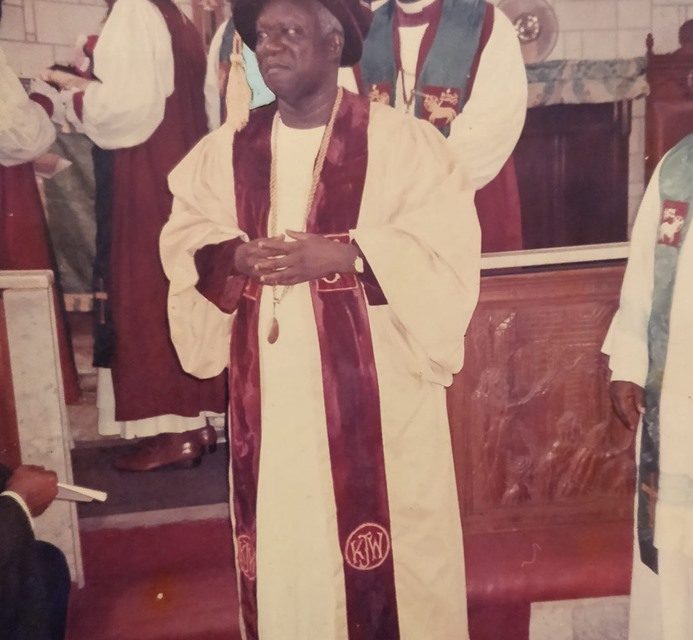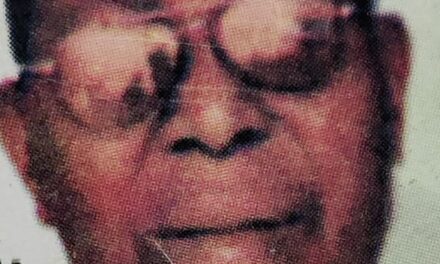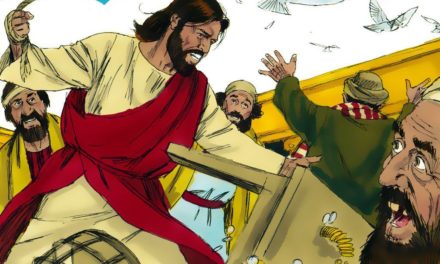Despite our challenges, Nigeria as a nation and Methodist Church Nigeria as the first international denomination in Nigeria continue to develop ‘beyond the imagination of the Missionaries who worked there up to the time of independence and left.’ The Methodist leadership development especially after the 1962 autonomy from the British Methodist presidential system to 1976 indigenous corporate Episcopacy was not without its numerous challenges especially the Methodist crisis. From Thursday 24th May, 1990, the date of the execution of the new Methodist Church Nigeria 1990 Constitution, according to Sir Michael Familusi in his book, Methodism in Nigeria, the action of the church points to ‘what it terms Wholistic Ministry. By this, all trades and professions would join hands in the ministration of the Church.’
When Nigerian Methodism became episcopate constitutionally, a follow up booklet in 2005 “Achieving the Vision,” the reports of Special Committees among others development considerations and observations noted ‘that those who left constitutional offices of the Church became passive to the goings-on in the church.’ The Methodist Conference under the leadership of His Eminence Sunday Mbang ‘examined the situation and in the 1990 Constitution created a Merit and Award Committee to look into that situation and recommend a way of rewarding them like the local churches.’ The challenge here is that, the recommendation should be more of a way of personal, church, and leadership renewal rather than a reward or recognition. Reward for our obedience to God’s mission are very explicit in Deuteronomy 28:1-14.
In 1991 during the Conference at Ifaki, the committee met and recommended the following awards: Knights of John Wesley (KJW – for all performance; Knight of Charles Wesley (KCW – for musicians and organists); Officer of the Order of the Wesleys (OOW); and Member of the Order of the Wesleys (OOW).
Familusi explained that the Conference of 1992 accepted the recommendations and the Conference of 1993 nominated five recipients for the posthumous awards, nine people for the knighthood, five people for the Officers of the Order of the Wesley and four people for the Member of the Order of the Wesley. The first service of investiture took place on November 19, 1994 at the Methodist Church of the Trinity, Tinubu, Lagos, with pomp and pageantry in front of the altar of the Most High. Among the first recipient were Rev W F Mellor, Pa H U Osoka, Pa Hassan Odukale, Chief Justice Udo Udoma, Pa Michael. M Familusi, and Pa Rufus Ibeaka. I remember, His Grace Most Rev Sanda Ayo Ladigbolu who preached the sermon at the first service of investiture charged the pioneer Knights and awardees to remember that to whom much is given, much is expected in spreading Scriptural holiness in Nigeria and outside Nigeria.
It was a former Lay President of Conference, Sir Dr Emeka Omeruah (1943-2006) who summoned the first meeting of all the Knights that led to the formation of the Council of Methodist Knights in Umuahia on November 11, 2001. The objectives of the Council were: ‘To provide a forum for all Knights to interact, fellowship and discuss matters of common interest affecting the Methodist Church Nigeria … To encourage members to support the Church, morally, spiritually and financially as much as possible in all its programmes. To encourage members to read the Bible and search the Scripture regularly. To make constructive suggestions and offer advice and guidance concerning the growth and welfare of the church and its members at all levels of the church. To bring the Gospel to non-Christians with a view to persuading them to join the church. To intercede in disputes among members at all levels of the church.’
The constitutional formation of Methodist Merit and Awards and the missional objective of the Council of Knights defines Methodist Knighthood shaped by Wesleyan spirituality as a means of grace and of personal, leadership and church renewal and revival. Methodist Knighthood missionally is distinctive from the two main different kinds of the physicality of knighthood that existed side-by-side during the Medieval and Renaissance periods, namely, the secular and a religious Military Order. The secular knighthood is when ‘a man swore his oath of allegiance to a particular king while a religious Knighthood of Military Order is about ‘being a member of a religious Military Order. Using the words of Familusi, Methodist Knighthood and merit awards are ‘unprecedented in the history of Methodist Church anywhere in the world.’ Methodist Knighthood is more of a call to personal renewal in service to God and humanity than personal earthly rewards or wearing ceremonial regalia decoration.
The theology of Methodist Knighthood shaped by the theology, practices and spirituality of our corporate Episcopacy is centred on the Sword of the Spirit, the Bible. Methodist Episcopacy is not shaped by the physicality and vanity of the arm of flesh hence, the theology and practice of Methodist Knighthood is not based on the martial arts and sword fighting. The theology and spirituality of Methodist Episcopacy and especially our Knighthood summons the leadership and the recipients as mentors, gospel foot soldiers, kingdom treasurers, and prayer warriors to be faithful and fruitful to their missional, calling, vocations, and gifting. The theology and spirituality of Methodist Knighthood reveals the vanity, danger, greed, seductions in the physicality of knighthood and other church offices and positions without eternal focus and intentionality.
Methodist Knighthood beyond the physicality of other knighthoods is family oriented based on the traditional plan of marriage according the Bible. Methodist Knighthood in accordance with the scripture honours and presents their bodies as ‘a living sacrifice, holy, acceptable to God’ as their reasonable service (Rom 12). Using the words of Patrick Meehan Brown, Methodist Knighthood is in contrast to the German’s physicality of “knights of the Order” that “submitted their bodies to violence” (Journal of History, Volume 7 (2013). The physicality of knighthood and its lay theology in the twelfth and thirteenth century European culture ordered, analysed, and classified the social world, no less than the natural world, in an effort to align human society with the will of God. Guided by lay initiative, it is important to note that a striking mid-thirteenth-century illumination vividly portrays knighthood in a righteous struggle against sin and vice. The physicality of knighthood based on the social and cultural ferment of that time was not only full of contention and corruption, it was waste bins full of betrayal, greed, killings, and power struggle.
On the Silver Jubilee celebration of Methodist Knighthood and awards, the prayer by Professor Olukayode Oladipo Amund, a former Senior Local Steward, Hoarse’s Memorial Methodist Cathedral, Yaba, Lagos, and the Vice Chancellor, Elizade University, Ilara Mokin, and one of the newly invested Knight of John Wesley is helpful for our reflection. Professor Amund said, “God is working His purpose out in my life giving me another surprise package like some Biblical figures of old. For example, Mary did not lobby to become the mother of Jesus as she was favoured among women. Mordecai did not cringe for recognition before being honoured by the king. David, a smallish man was the most preferred among his brethren to become king. Lord, this knighthood award is your making. I didn’t know whom you inspired to nominate me, neither did I crave for it. You have lifted me out of the miry clay to place me among the noble men and women in the body of Christ. There are indications that you have not yet finished with me. As I move on Lord, grant me the submissiveness of Mary, the gallantry of Mordecai and the courage of David to do your will on this novel course as a worthy knight. Thank you Almighty Father.” According to Professor Amund, his award of the Knight of John Wesley like others is about God working out His missional purpose out in the lives of the recipients like some Biblical figures of old. Methodist Knighthood is about God’s favour and not about lobby or cringing for recognition for honour. Methodist Knighthood and awards are God made, a means of lifting people from miry clay to serve the Body of Christ.
Professor Amund’s prayer provides a renewing reflection for the leadership and the recipients not to be tired of serving God but to pray for the submissiveness of Mary for real labour and real mission delivery, “Behold, I am the servant of the Lord; let it be to me according to your word” (Lk 1:38). There will never be another Mary, mother of Christ but, ‘again and again God in his word and through the work of the Holy Spirit comes to us and asks us to do some things for him and his kingdom.’ There will also never be another Mordecai but his defining scripture resonate with the need to risk and care for the people, “Mordecai the Jew was second in rank to King Xerxes, preeminent among the Jews, and held in high esteem by his many fellow Jews, because he worked for the good of his people and spoke up for the welfare of all the Jews” (Esth 10:3). Mordecai, sold out, no compromise, would not bow down to Haman, the culture of the world. Worthy Methodist Knighthood at 25 must give no room for mediocrity or half- hearted Methodist Christianity. To do God’s will as worthy Methodist knights in the seductions of today’s culture, we need the reality of David’s courage wellspring. The truth is that, David was not self-confident. Giant slaying David was God-confident. Beyond the physicality of knighthood, worthy Methodist knighthoods are rooted in our relationship with Jesus Christ (Ps 27).
The Silver Jubilee of Worthy Methodist Knighthood summons the leadership and the recipients to arise in repentance, in unity and give a new fruitful missional repositioning and direction to the first international denomination in Nigeria. Methodist Church Nigeria has nothing to do with poverty and decline with the increase, calibres, and commitments of our worthy knights, awardees and the entire leadership. Among Methodist knights and awardees, we have gifted international vessels, Jesus’ foot soldiers, soul winners and prophetic professionals and business men and women that could spread Methodism and Scriptural Holiness across the globe and especially across all the nooks and corners of Nigeria. Indeed, Worthy Methodist Knighthood at 25 is about the “World as our Parish,” and the World Methodism is looking unto Methodist Church Nigeria for spiritual direction, renewal and revival. Worthy Knights, Holy Knights











Recent Comments